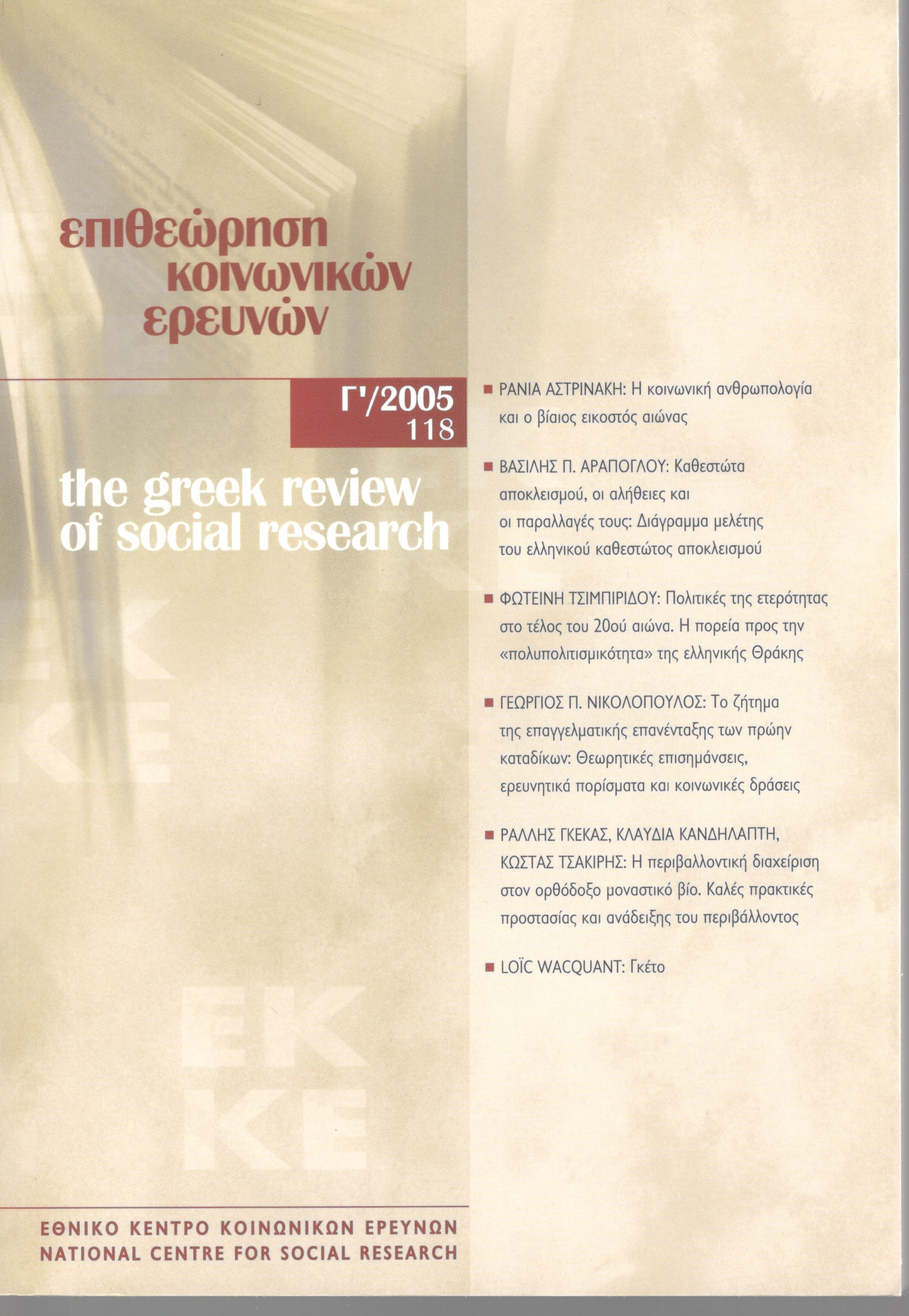Towards a creative critique of the “human”: Precarity, resistance and subversion experiences by a Kurdish feminist transvestite performer in Istanbul

Abstract
The present study deals with the case of Esmeray, a Kurdish transvestite from Kars, who immigrated to Istanbul in the 1980s. By examining her autobiographical film and her interviews, the performances she has delivered recently,
and also her activism as a “leftist feminist transvestite”, I will attempt to comment on her multiple experiences of discrimination and contingency. The later are shaped through multiple power relationships, hegemonies and displacements
in the megacity of Istanbul at the era of neo-liberal governmentality. By using social poetics, such as humor and sarcasm she is not only transforming negative living standards into reflexive cultural critique for the majority of the
Turkish society; she is thus also challenging us for a redefinition of the “human” on pluralist terms.
Article Details
- How to Cite
-
Τσιμπιρίδου Φ. (2013). Towards a creative critique of the “human”: Precarity, resistance and subversion experiences by a Kurdish feminist transvestite performer in Istanbul. The Greek Review of Social Research, 140, 133–151. https://doi.org/10.12681/grsr.61
- Section
- Articles

This work is licensed under a Creative Commons Attribution-NonCommercial 4.0 International License.
Authors who publish with this journal agree to the following terms:
- Authors retain copyright and grant the journal right of first publication with the work simultaneously licensed under a Creative Commons Attribution Non-Commercial License that allows others to share the work with an acknowledgement of the work's authorship and initial publication in this journal.
- Authors are able to enter into separate, additional contractual arrangements for the non-exclusive distribution of the journal's published version of the work (e.g. post it to an institutional repository or publish it in a book), with an acknowledgement of its initial publication in this journal.
- Authors are permitted and encouraged to post their work online (preferably in institutional repositories or on their website) prior to and during the submission process, as it can lead to productive exchanges, as well as earlier and greater citation of published work (See The Effect of Open Access).



